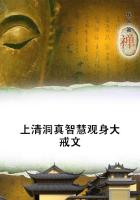"Good!"he exclaimed emphatically."The law,to-day,is more of a career than ever,especially for a young man with your antecedents and advantages,and I know of no city in the United States where I would rather start practice,if I were a young man,than ours.In the next twenty years we shall see a tremendous growth.Of course you'll be going into your father's office.You couldn't do better.But I'll keep an eye on you,and perhaps I'll be able to help you a little,too."I thanked him gratefully.
A famous artist,who started out in youth to embrace a military career and who failed to pass an examination at West Point,is said to have remarked that if silicon had been a gas he would have been a soldier.Iam afraid I may have given the impression that if I had not gone to Weathersfield and encountered Mr.Watling I might not have been a lawyer.
This impression would be misleading.And while it is certain that I have not exaggerated the intensity of the spiritual experience I went through at Cambridge,a somewhat belated consideration for the truth compels me to register my belief that the mood would in any case have been ephemeral.The poison generated by the struggle of my nature with its environment had sunk too deep,and the very education that was supposed to make a practical man of me had turned me into a sentimentalist.Ibecame,as will be seen,anything but a practical man in the true sense,though the world in which I had been brought up and continued to live deemed me such.My father was greatly pleased when I wrote him that Iwas now more than ever convinced of the wisdom of choosing the law as my profession,and was satisfied that I had come to my senses at last.He had still been prepared to see me "go off at a tangent,"as he expressed it.On the other hand,the powerful effect of the appeal made by Weathersfield and Mr.Watling must not be underestimated.Here in one object lesson was emphasized a host of suggestions each of which had made its impression.And when I returned to Cambridge Alonzo Cheyne knew that he had lost me....
I pass over the rest of my college course,and the years I spent at the Harvard Law School,where were instilled into me without difficulty the dictums that the law was the most important of all professions,that those who entered it were a priestly class set aside to guard from profanation that Ark of the Covenant,the Constitution of the United States.In short,I was taught law precisely as I had been taught religion,--ural infallibility over again,--a static law and a static theology,--a set of concepts that were supposed to be equal to any problems civilization would have to meet until the millennium.What we are wont to call wisdom is often *****ly innocent of impending change.
It has no barometric properties.
I shall content myself with relating one incident only of this period.
In the January of my last year I went with a party of young men and girls to stay over Sunday at Beverly Farms,where Mrs.Fremantle--a young Boston matron had opened her cottage for the occasion.This "cottage,"a roomy,gabled structure,stood on a cliff,at the foot of which roared the wintry Atlantic,while we danced and popped corn before the open fires.During the daylight hours we drove about the country in sleighs,or made ridiculous attempts to walk on snow-shoes.
On Sunday afternoon,left temporarily to my own devices,I wandered along the cliff,crossing into the adjoining property.The wind had fallen;the waves,much subdued,broke rhythmically against the rocks;during the night a new mantle of snow had been spread,and the clouds were still low and menacing.As I strolled I became aware of a motionless figure ahead of me,--one that seemed oddly familiar;the set of the shabby overcoat on the stooping shoulders,the unconscious pose contributed to a certain sharpness of individuality;in the act of challenging my memory,Ihalted.The man was gazing at the seascape,and his very absorption gave me a sudden and unfamiliar thrill.The word absorption precisely expresses my meaning,for he seemed indeed to have become a part of his surroundings,--an harmonious part.Presently he swung about and looked at me as though he had expected to find me there--and greeted me by name.
"Krebs!"I exclaimed.
He smiled,and flung out his arm,indicating the scene.His eyes at that moment seemed to reflect the sea,--they made the gaunt face suddenly beautiful.
"This reminds me of a Japanese print,"he said.
The words,or the tone in which he spoke,curiously transformed the picture.It was as if I now beheld it,anew,through his vision:the grey water stretching eastward to melt into the grey sky,the massed,black trees on the hillside,powdered with white,the snow in rounded,fantastic patches on the huge boulders at the foot of the cliff.Krebs did not seem like a stranger,but like one whom I had known always,--one who stood in a peculiar relationship between me and something greater Icould not define.The impression was fleeting,but real....I remember wondering how he could have known anything about Japanese prints.
"I didn't think you were still in this part of the country,"I remarked awkwardly.
"I'm a reporter on a Boston newspaper,and I've been sent up here to interview old Mr.Dome,who lives in that house,"and he pointed to a roof above the trees."There is a rumour,which I hope to verify,that he has just given a hundred thousand dollars to the University.""And--won't he see you?""At present he's taking a nap,"said Krebs."He comes here occasionally for a rest.""Do you like interviewing?"I asked.
He smiled again.
"Well,I see a good many different kinds of people,and that's interesting.""But--being a reporter?"I persisted.
This continued patronage was not a conscious expression of superiority on my part,but he did not seem to resent it.He had aroused my curiosity.
"I'm going into the law,"he said.















